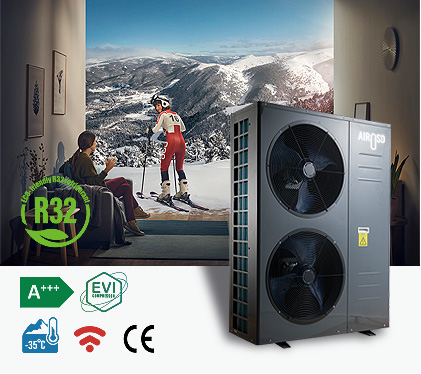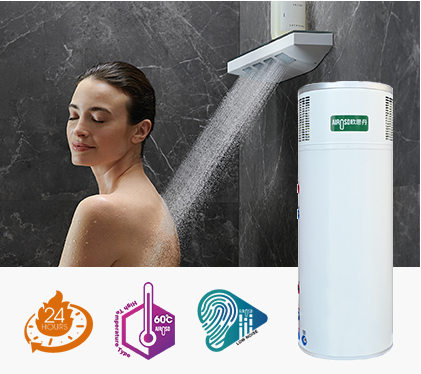Heat pumps are becoming increasingly popular as energy-efficient and adaptable HVAC systems that can both heat and cool buildings. Many people ask if a heat pump can efficiently cool a property because they are traditionally recognized for their heating powers. In this article, we'll delve into the workings of heat pumps and explore their ability to keep your home cool during warm weather.
What Are The Heat Pumps?
Heat pumps, as opposed to heat generators, work on the principle of heat transmission. They are made up of two major parts: the indoor unit (evaporator) and the outside unit (condenser). The heat pump takes heat from the exterior air (even at cold temperatures) and transfers it within during the heating mode. In the cooling mode, this process is reversed. The indoor unit absorbs heat from the indoor air, and the outdoor unit releases it outside. The refrigerant circulating between these units plays a crucial role in absorbing and releasing heat.

Domestic Hot Water Air Source Heat Pump Manufacturer
The Cooling Process
When a heat pump is set to cool, the refrigeration cycle begins with the indoor unit absorbing heat from the indoor air. The refrigerant in the evaporator coil evaporates, absorbing heat energy. This heat is then transferred to the outside unit, where the refrigerant condenses and releases the heat. The compressor of a heat pump is critical in pressurizing the refrigerant for effective heat transmission. As a result, the home feels cooler inside.
Advantages Of Heat Pump Cooling
Here are the advantages of heat pump cooling:
Energy Efficiency
Heat pumps are well-known for their high energy efficiency. They can deliver cooling with less energy usage than standard air conditioning systems since they move heat rather than generate it. This efficiency helps to cut energy expenses and the environmental effect.

Air Source Heat Pump Water Heater Manufacturer
Dual-Functionality
The ability of a heat pump to switch between heating and cooling modes makes it a year-round solution. Homeowners can enjoy both heating in the winter and cooling in the summer without the need for separate systems, providing convenience and cost savings.
Consistent Performance
Heat pumps maintain consistent cooling performance, even in challenging weather conditions. Heat pumps, unlike other air conditioning systems, continue to perform efficiently at harsh temperatures, guaranteeing comfort all year.
Considerations For Effective Cooling
Here are the considerations for effective cooling:
Climate Considerations
While heat pumps are effective in moderate climates, extreme temperatures can impact their efficiency. In very hot climates, a backup air conditioning system or other cooling solutions may be necessary to supplement the heat pump's performance.

China Air To Water Heat Pump Domestic Hot Water
Proper Sizing
Proper sizing is crucial for the effective cooling of a house. A heat pump that is too large or too small may lead to inefficiencies, increased energy consumption, and discomfort. It is critical to consult with an expert to decide the correct size for the home.
Regular Maintenance
To ensure the longevity and optimal performance of a heat pump, regular maintenance is essential. This includes cleaning or replacing air filters, checking refrigerant levels, inspecting coils, and ensuring proper airflow. Regular maintenance not only increases performance but also helps to avoid future problems.
Conclusion
Homeowners may improve their cooling experience by learning how heat pumps function and taking into account elements such as climate, size, and maintenance. Besides, if you are looking for a trusted heat pump supplier, AIROSD is ideal for you. We offer a wide range of heat pumps including pool heat pumps, air source heat pumps, etc. Please feel free to contact us for more product details!



.png)